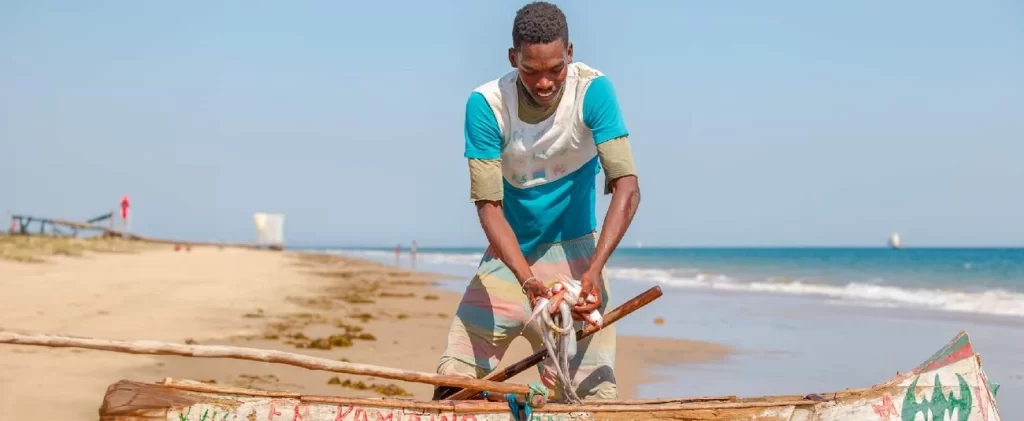Read in
Benin and the African Development Bank officially launched the Project to Promote Sustainable Aquaculture and the Competitiveness of Fisheries Value Chains in Cotonou on 15 May 2024, to increase the contribution of fisheries and aquaculture sector to food security and local economies.
“A significant part of the fishing community in Benin has waited a long time, and now the project is underway,” said a delighted Gaston Cossi Doussouhoui, Minister of Agriculture, Livestock Farming and Fisheries. “We have men and women who rely on fishing for their livelihood and had no way of realizing their potential. Moreover, fisheries and aquaculture were seen as the poor relation to the agricultural sector. Our plan is to reverse that by taking advantage of the political will that now exists,” he continued.
Since Benin’s independence the fisheries and aquaculture sub-sector has been underexploited despite its enormous potential, so far so that it became a limiting factor on agricultural sector growth, added Mr Doussouhoui. It employs around 15 percent of the working population and contributes 8 percent of the country’s agricultural gross domestic product. Fish production covers only 40 percent of national needs, so high levels of fish products are imported.
In 2016, the government of Benin decided to make the sub-sector one of the country’s engines of economic growth to correct the shortfall. Several interventions by development partners and private-sector initiatives provided a partial response to the crisis. The Project to Promote Sustainable Aquaculture and the Competitiveness of Fisheries Value Chains is one of these, aiming to increase production and productivity in the national aquaculture sector on a sustainable basis.
At a cost of around 24.6 billion CFA francs, the project aims to promote competitive, climate-resilient fish farming over the next five years, spearheaded by the introduction of floating cages and aquaculture villages over large areas. Attractive commercial value chains will be built and maintained to absorb production, and support will be provided for improving the governance of inland and marine fisheries. The project will help existing aquaculture businesses (breeding centres, fish farms, food manufacturers) modernize their tools and increase their production capacity and support the annual production of 65 million young fish (40 million tilapia, 20 million claria and 5 million other species) and 30,000 tons of food.

“I would like to thank the African Development Bank and the Global Environment Facility for their ongoing support of the government and beneficiaries to achieve food and nutritional security in Benin. I would ask the beneficiaries to cooperate closely with the project and make its work easier,” commented Minister Dossouhoui.
“Implementing this project is an opportunity for the Bank to expand its portfolio and position itself as a key partner for Benin’s socioeconomic development,” said Robert Masumbuko, the African Development Bank’s Country Manager for Benin. “I would like to point out and applaud the exceptional speed with which the letter of agreement was signed in December 2023, after the project was approved by the Bank’s Board of Directors on 22 November 2023. I would urge all project team members to carry out their activities diligently and would like to reassure them that the African Development Bank Group will do everything it can to ensure the success of a project that is so important for the people of Benin,” he added.



